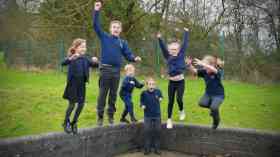With over 25 years experience in the industry, we are an independent family run business by a father-son team, specialising in
Supplier Focus
Latest Supplier News
nasen is the National Association for Special Educational Needs – a charitable membership organisation that exists to support and champion those working with, and for, children and young people with SEND and learning differences.
Join as a member for free to access resources and support and valuable CPD











